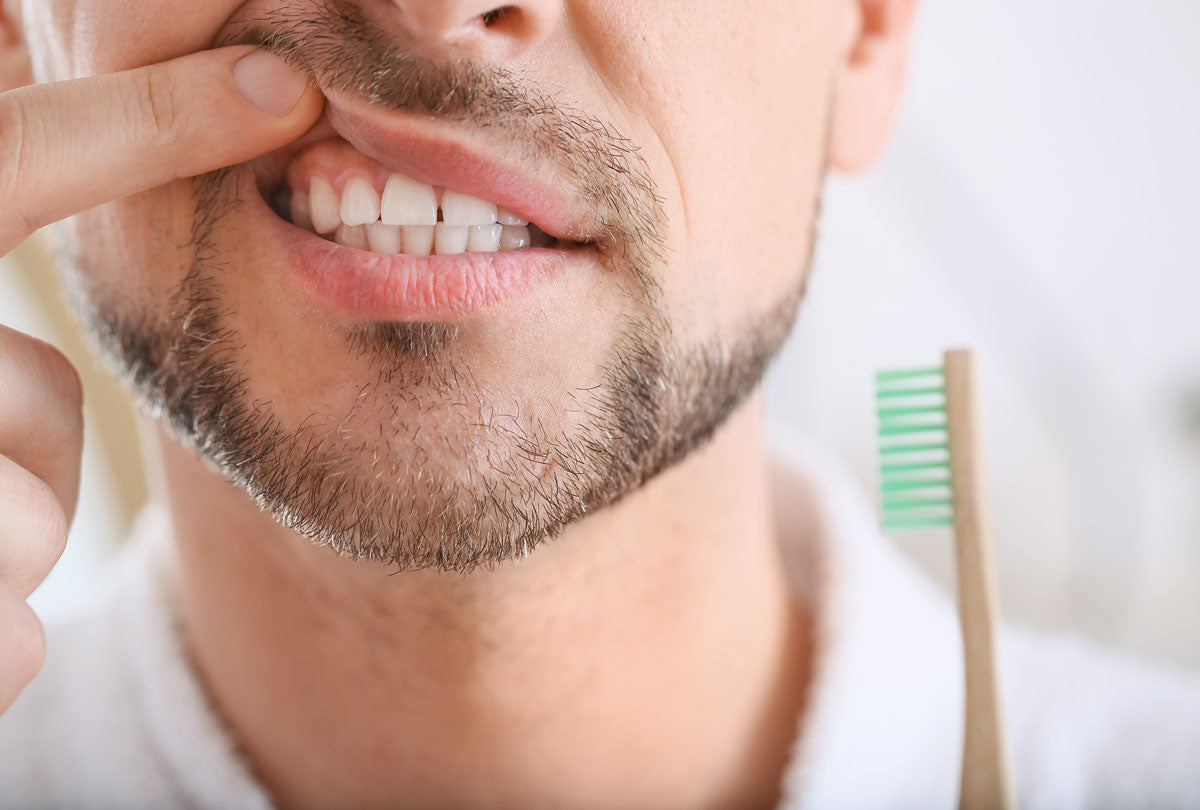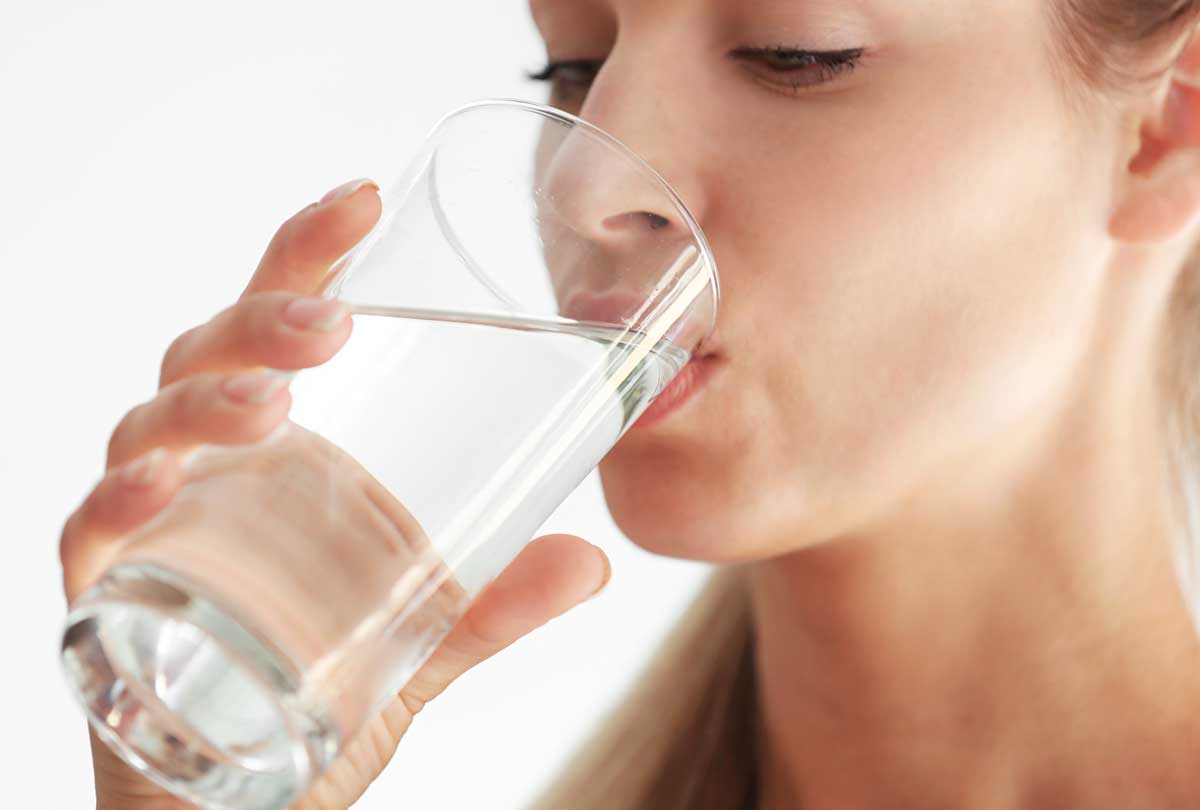From mouth sores to bad breath, the side effects of chemotherapy can be really hard on people’s smiles.
That’s because, while fighting cancer cells, chemotherapy damages healthy cells in the mouth and reduces the body’s ability to fight bacteria, fungi and viruses. Additionally, chemotherapy thins the lining inside the mouth, increasing the chance of infection.
The dental care needs of those undergoing chemo are unique, and it will be more important than ever for you or your loved one to focus on good oral care after chemo. We’ve got you covered right here with what you need to know.
Managing Mouth Sores
Mouth sores are extremely common during chemotherapy, affecting more than 4 in 10 patients. They can also occur during radiation therapy to the head or neck.
These burn-like sores can appear on the gums, tongue, lips, and roof or floor of the mouth. They’ll usually crop up within a few days after beginning chemo and last for 2–3 weeks post-treatment, typically peaking in severity on day 7 after treatment ends.
It’s important to treat mouth sores early – or try to prevent them altogether – as they can become extremely painful, making it hard to talk, chew food and swallow. Ultimately, they can interfere with cancer treatment if they become infected.
Did you know? Research shows that sucking on ice chips or sugar-free popsicles right before and after each chemo treatment may decrease the odds of getting mouth sores by 60 percent.
If you do get a mouth sore, here are some ways to manage them:
- Brush with a children’s toothbrush or extra-soft-bristled toothbrush, and make the switch to a low-abrasion toothpaste. You’ll want to brush 30 minutes after eating and before bedtime. If you find that brushing is too painful, a piece of gauze wrapped around a popsicle stick may be a good option.
- Keep your lips moist by using a lip balm 4–6 times a day.
- Decrease the amount of time you wear dentures – ideally, only during meals. Be sure to clean them after each meal.
- Use a straw when drinking to dodge sore areas in the mouth. Avoid citric juices, alcohol and tomato juice.
- Floss before bedtime daily with unwaxed floss. If you have bad gum bleeding or weren’t a flosser before starting chemo, consider using a water pik/water flosser.
- Apply a soothing dental gel to manage discomfort and promote healing. We recommend Pro Relief Dental Gel because it contains a powerful blend of Oxygene®, zinc, folic acid, aloe and chamomile to neutralize bacteria, hydrate gum tissue, and provide the ultimate relief for mouth sores and sensitive gums.
- Steer clear of acidic or spicy food and drinks.
- Rinse your mouth frequently and gargle for 30 seconds every 4 hours during the day (more or less as needed) and when you wake up during the night. You can use plain lukewarm water or one of these formulas:
- 4 c. water mixed with 1 t. salt
- 4 c. water mixed with 1 t. baking soda
- Alcohol-free mouthwash
Good-to-Know Info: It’s vital to make sure your mouthwash is alcohol-free to avoid any stinging and burning. Dentists recommend Oxyfresh’s award-winning Gentle Formula Unflavored Mouthwash. It’s ideal for chemotherapy patients because it’s alcohol-free AND completely free of flavors. This is important, as mint and cinnamon can sting painful mouth sores. Nothing is gentler than this sensitive mouthwash to neutralize bacteria while protecting from bad breath.
Controlling Chemotherapy Dry Mouth
Chemotherapy drugs and at-home medications often cause dry mouth. Additionally, radiation therapy can affect the function of the salivary glands. (Saliva is nature’s way of preventing dry mouth.) If you’re experiencing chemo side effects like vomiting and diarrhea, this can cause dehydration, which is also a contributing factor to dry mouth.
Ways to protect yourself from dry mouth:
- Drink 8-12 glasses of liquid a day unless your cancer team indicates otherwise. If this is a struggle, check out: How Can I Get Enough Water During Cancer Treatment
- Quit smoking if you haven’t already
- Run a humidifier during the day and at night
- If possible, try to breathe through your nose instead of your mouth
- Limit drinks like coffee, tea and cola
- Keep a spray bottle handy to squirt water into your mouth to moisten it
- Suck on sugar-free candies
- Don’t use alcohol-based mouthwash, as alcohol is a drying agent
Smile Tip: Sodium lauryl sulfate (SLS) is found in many toothpastes, and is known to cause dry mouth and mouth ulcers. If you have dry mouth from chemotherapy, try Fresh Breath Lemon Mint toothpaste. It’s SLS-free, dye-free and low abrasion to give your smile extra TLC when you need it most.
If you’re having trouble eating or swallowing due to dry mouth, try these tips:
- Rinse your mouth right before eating.
- Pour broth or sauces on your food, or mix in yogurt or milk.
- Avoid rough foods such as chips and crackers. Instead, choose soft foods that are room temperature or slightly warmed up and cut into small pieces. Chew slowly.
- Bust out the blender – “chemo smoothies” are a great way to get those raw fruits and veggies that are so good for a healthy smile and body but may be difficult to consume during chemo.
Bye-Bye, Chemo Bad Breath
Bacteria in the mouth is what gives off a bad smell. Bacteria multiplies quickly in a dry environment, which is why dry mouth and chemo bad breath go hand-in-hand. If you suffer from nausea or vomiting, this can also make it difficult to maintain fresh breath.
Besides staying hydrated, you’ll want to be hyper-vigilant in your oral care routine to fight off bad breath. One of the favorite spots for bacteria to lurk is the tongue, so make sure you’re cleaning your tongue, and not just your teeth and gums. You can use a special tool called a tongue scraper to do this or even an inverted kitchen spoon. Both will remove more bacteria from the tongue compared to a toothbrush.
Rinsing with mouthwash is also a great way to fight bad breath, but remember, it should be alcohol-free. Alcohol is a drying agent, which means it actually creates more bacteria in the mouth soon after swishing. Additionally, alcohol can sting delicate gum tissue and mouth sores.
Mint in mouthwash can also cause sensitivity during chemo. That’s why Oxyfresh’s Unflavored Mouthwash is such a great choice. There’s no alcohol, sweeteners or flavorings of any kind. The exclusive, gentle ingredient Oxygene® inside neutralizes bad breath for hours rather than masking it artificially. It’s true breath control that’s gentle on your smile.
We’re here because we care.
If you have any questions about Oxyfresh dental products for soothing relief, fresh breath and smile protection during chemotherapy, please let us know. We’re here for you, and wish you or your loved one speedy healing and all the health and happiness in the world.




